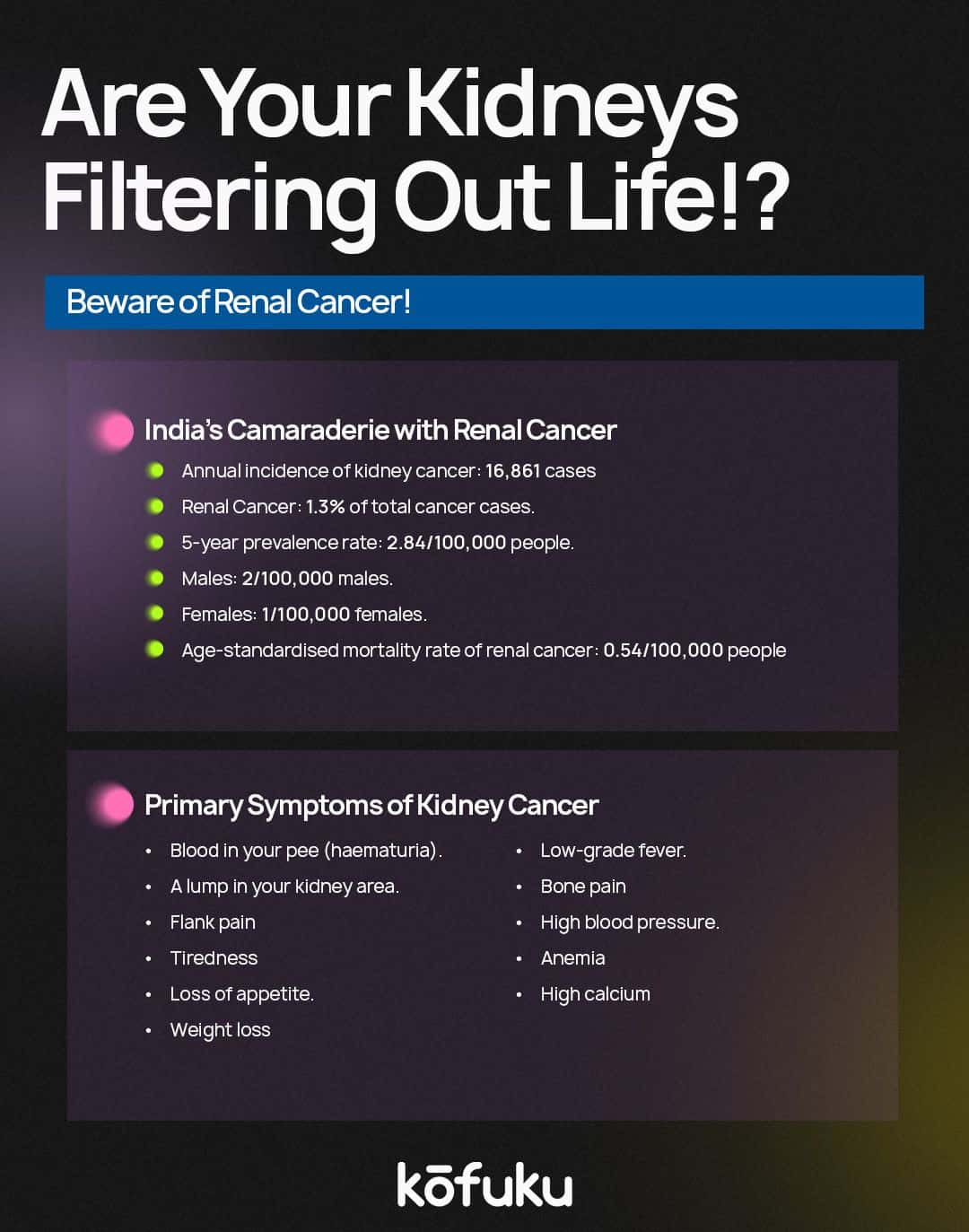Kidney Cancer Causing Your Legs to Swell? Here’s Why?

Introduction
Have your legs and ankles swollen up? Normally, you would call it a sprain. However, if it is not a result of a physical accident, it could be a sign of something a little more sinister. Something in your kidneys.
You see, the kidneys are a very important part of our system. They are responsible for filtering the waste products from our blood. They are a special filtration system for our body. Kidneys dictate the levels of many substances in the blood.
Swelling in the legs or ankles can be a tell-tale sign of kidney cancer. This can happen when a kidney tumour does not allow the kidney to drain excess fluid. This excess fluid then sediments in other parts of the body, including your ankles and legs, which is called Edema. Here’s how swelling of your legs can tell you all about your kidney cancer.

Reasons for swelling of the legs
Kidney Dysfunction
It is the kidneys which regulate fluid balance, getting rid of excess waste and salt from the bloodstream. When kidney cancer impacts one or both kidneys, they lose their ability to function.
If the cancer grows or spreads, it might mess with the kidney’s ability to filter, which leads to a build-up of waste products and fluid retention. Just as liver cancer makes fluid accumulate in the abdomen, this retained fluid inside the kidneys can accumulate in tissues, especially in the lower extremities such as the legs, resulting in swelling (Edema).
Obstruction of veins
This is another factor that results in the swelling of legs in cancer patients - the obstruction of veins. If the kidney tumour grows in size or spreads to adjacent structures, it can press against blood vessels, especially the renal vein, which is responsible for ferrying blood away from the kidney to the heart.
Pressure on the vein can impact blood flow, causing blood to accumulate in the legs and swell. This is quite common when the cancer has metastasized.
Lymphatic Blockage
The lymphatic system is responsible for getting rid of excess fluids and waste from tissues. The kidneys are closely connected to lymphatic drainage. When kidney cancer spreads, it might involve the lymph nodes in proximity, blocking the normal flow of lymphatic fluid.
This can result in lymphedema, a kind of swelling that usually happens in the legs, causing them to swell. This is more common when the cancer has spread to lymph nodes, something that happens in the more advanced stages of kidney cancer.
Reduced Albumin Levels
Albumin- a protein that the liver produces, that helps regulate osmotic pressure required to retain fluid within our blood vessels. When you have kidney cancer, the kidneys might leak proteins such as albumin into the urine, in a condition called proteinuria.
Hence, there is less albumin circulating in the bloodstream which can result in a decrease of blood plasma osmotic pressure. This results in fluid leaking out of the blood vessels and accumulating in the tissues, resulting in edema in the legs.
Side Effects of Treatment
Swelling in the legs can also happen as a result of side effects of cancer treatments. Chemotherapy and radiation therapy are usually used to treat kidney cancer, and fluid retention is a side effect of these treatments.
Certain chemotherapy drugs can directly impact kidney function or change fluid balance, resulting in swelling. Also, medicines like steroids, which are sometimes administered to manage inflammation or pain can result in water retention and edema.
Blood Clots
Kidney cancer can sometimes result in the formation of blood clots, especially in the veins that drain the legs. Such clots can impact circulation, and result in swelling. Kidney tumours can result in changes in blood flow. This can increase the risk of developing blood clots, especially in the veins.

Conclusion
When your legs swell up as a result of kidney cancer, that is caused by a number of factors relating to kidney dysfunction, obstruction of the veins, reduced protein levels and the impact of treatment.
It is important for patients to speak to their doctor if they see constant swelling in the legs, as it might point to complications that require their attention.
Treatment might involve addressing the cause of the swelling, such as improving the function of the kidneys, bringing down tumour size, or managing fluid retention.
FAQs
My legs are swollen and painful. Could it be kidney cancer?
If your legs have swollen up and are painful, you should get it checked by your healthcare provider because it could be a sign of kidney cancer.
I am above 50 years old. Is edema normal for me?
Edema is not normal and could be a sign of kidney cancer or some other health issue.
Why do my legs swell when I have kidney cancer?
Swelling can happen because of reasons like kidney dysfunction, blood clots, lymphatic blockages, or pressure from the tumour on veins.
What are the other symptoms of kidney cancer I should be worried about?
Together with swelling in the legs, kidney cancer might cause lower back pain, hematuria, unexplained weight loss, and fatigue.
Does kidney cancer result in both legs swelling?
While swelling of the leg is mostly seen in one leg, it is possible for this swelling to happen in both legs.






